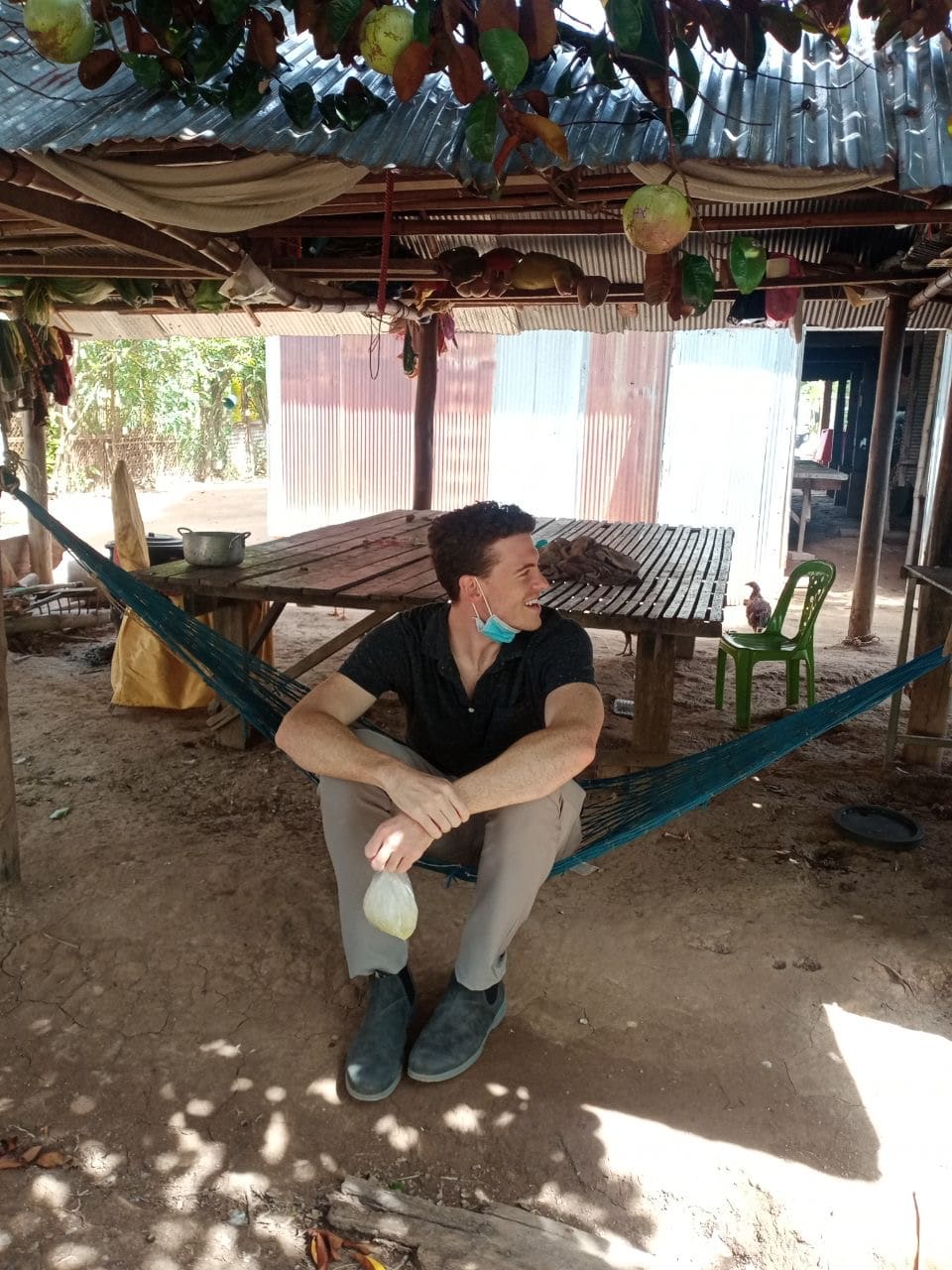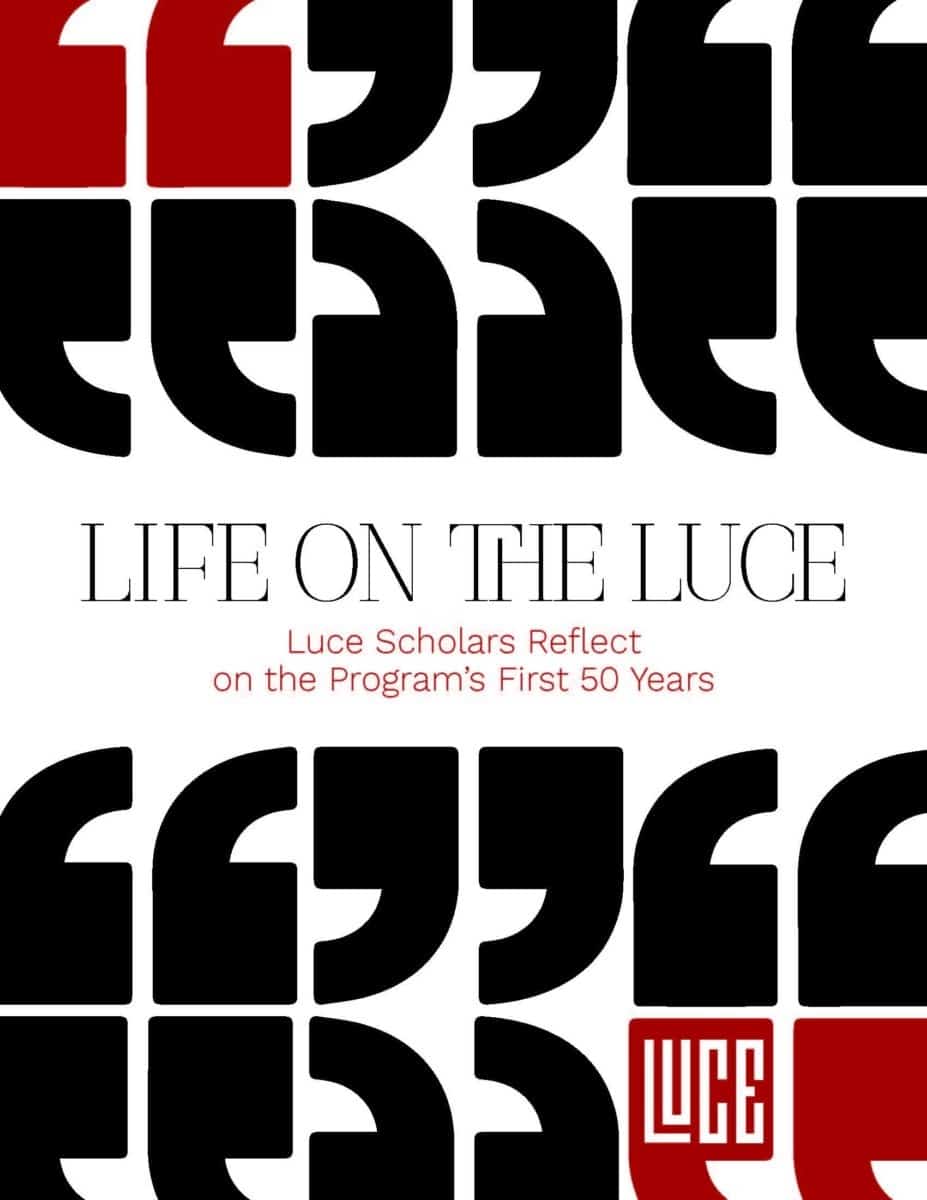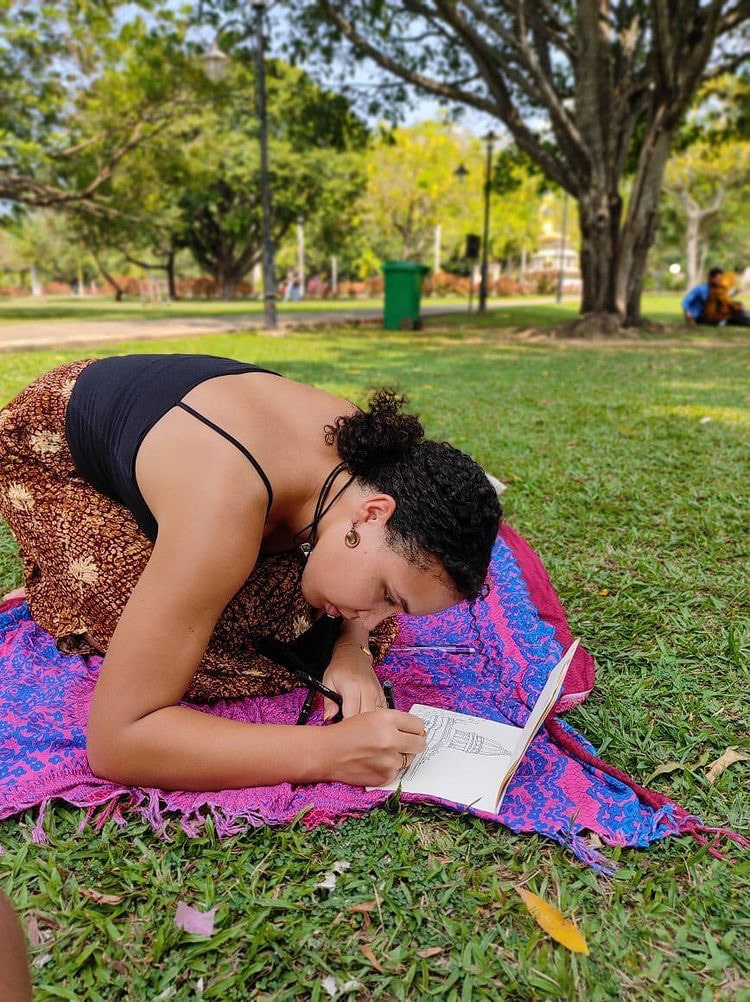When I arrived in Phnom Penh, a curfew intended to prevent further spread of SARS-CoV-2 was in place for 8:00 PM. The first weekend curfew lifted, I arrived home a few hours later than before only to find the gate of the property closed and locked. With only a few lights in the dark alley it was rather disorienting. I had not realized my home locked the entry gate at night, was unsure how to contact the property managers late in the evening, and was not confident the police would be able or willing to help. Besides finding a hotel, my option was to rattle the gate in hopes of waking someone inside. To my surprise, the “frontman” soon appeared. In Phnom Penh, it is usual and customary for buildings and stores to have frontmen—security guard is too restrictive—who act simultaneously as porters, parking attendants, and, generally, a welcome at the threshold. Here I learned a new lesson about these frontmen: they often sleep in hammocks or small beds outside residences and hotels. His bed was hidden away in a corner and I had clearly woken him.
Dazed from his slumber, he was uncertain about what I wanted. And though I did not know what he was saying, it was clear he had little intention of letting me inside. At this point, my Khmer was hardly functional—I knew the words for pineapple, cow, roundabout, duck egg, and national road—and I used the pronoun “I” with the verb “to live” in essence saying repeatedly, “I live, I live, I live,” inadvertently forgetting to add “here.” At some point, I took out my keys attempting to show I indeed lived there. I suspect it was my growing sense of desperation that convinced him to finally open the gate.
I learned several lessons that night. Most importantly, I decided that I would no longer be a stranger to the frontman at my residence. I decided that next time I saw him with a free moment, I’d use my still fractured Khmer to make some semblance of an introduction.
When I first introduced myself to Ree, in the light of day, I immediately understood why there had been confusion.
His eyes were obscured by milky cataracts. Of course it is no surprise he was not familiar with me and did not recognize me as a resident a few nights prior. For Ree, familiarity requires proximity, and I had not yet drawn near enough to understand what the world may look like from his eyes.
Following my clumsy introduction, we became friends. We adopted a word of the day—each morning, Ree would teach me a new Khmer word: backpack, tree, trashcan. He helped me negotiate tuktuks, offered me umbrellas when raining, and a shared a smile each time I left and returned home. As I adjusted to life in Cambodia, Ree, along with the other frontmen of Phnom Penh, street vendors, and tuktuk drivers, soon became the friendly, gentle faces who made this new city feel much more like a home.


